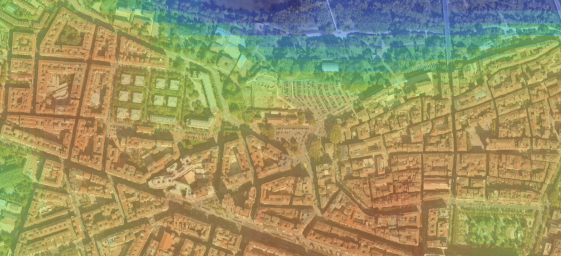The World Bank’s webinar series “Bringing Nature to Cities: Integrated Urban Solutions to Biodiversity Loss and Climate Change” will promote integrated urban solutions for cities to tackle biodiversity loss and climate change. Co-hosted by the Global Platform for Sustainable Cities (GPSC) and the Global Program on Nature-Based Solutions for Climate Resilience, the series of thematic events will provide an online knowledge exchange platform connecting policymakers, practitioners, and experts to further mainstream biodiversity considerations into cities and development projects.
Introduction
Nature-based solutions (NBS) can drastically reduce ambient temperatures in cities. Trees, vegetation, water bodies, green roofs and green surfaces can mitigate the Urban Heat Island Effect (UHI), improve thermal comfort in and around buildings, reducing the need for mechanical cooling, while bringing countless quality of life and health benefits to urban communities. While the benefits for people and the planet of well-designed NbS are clear, the implementation of urban NBS for cooling is not happening at the scale and speed required to ensure increased resilience of city dwellers to the impacts of rising temperatures.
This webinar presented transformational tools that can help cities plan and implement comprehensive cooling strategies that include NBS and passive cooling interventions. Leading experts outlined the multiple benefits of NBS for cooling, while city representatives from around the world shared their experiences in developing NBS to respond to heat risks and climate resilience needs.
Welcome Remarks
Jennifer Lenhart, Global Lead, WWF Cities
Keynotes
Kathy Baughman McLeod, Senior Vice President and Director, Adrienne Arsht Rockefeller Foundation Resilience Center
Panel Discussion: Cities Developing NBS for Cooling
Moderator: Jennifer Lenhart, Global Lead, WWF Cities
Santiago Saura, Councilor, City of Madrid, Spain
Xueman Wang, Senior Urban Specialist, GPSC, World Bank
Round Table: Tools for Developing NBS for Cities
Moderator: Kes McCormick, Associate Professor, Lund University
Rushad Nanavatty, Lead, Urban Transformation, RMI
Erica Ward, Senior Policy Advisor, Department for Environment, Food and Rural Affairs, United Kingdom
Closing Remarks
Martina Otto, Head, Cities Unit, United Nations Environment Programme
About the Cool Coalition
Launched at the First Global Conference on Synergies between the 2030 Agenda and Paris Agreement, the Cool Coalition is a global multi-stakeholder network hosted at the United Nations Environment Programme (UNEP) that connects a wide range of key actors from government, cities, international organizations, businesses, finance, academia, and civil society groups to facilitate knowledge exchange, advocacy and joint action on efficient and climate-friendly cooling.
The Coalition supports countries and industry to tackle growing cooling demand using a comprehensive approach and to raise climate ambition in the context of Agenda 2030, the Kigali Amendment to the Montreal Protocol, and the Paris Climate Agreement. In September 2019, the Cool Coalition became one of the official outcomes and “Transformation Initiatives” put forward by the Executive Office of the Secretary-General for the UN Climate Action Summit in New York. The Cool Coalition has already over 110 partners driving change in the cooling sector.







